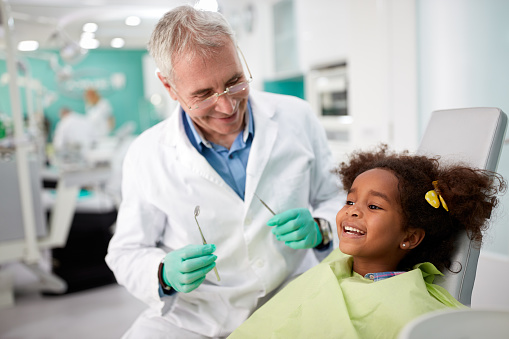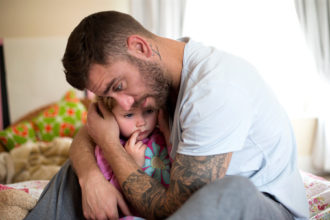You want your child to have the healthy and successful future you’ve always imagined for them. And when it comes to their teeth, the future is NOW. Too often “baby” teeth get neglected because we think they aren’t permanent and a new set will come in a few years. However, you should take good care of those impermanent “baby” teeth as they can significantly impact your child’s “adult” teeth.
Tooth decay is one of the most common chronic conditions for kids in the U.S., so we talked to Dr. Ernest Orphanos, DDS, to help understand what impact our children’s teeth have on their long-term health and how to prevent early cavities now so your children can have good dental health as they grow.
A board-certified periodontist with over 25 years of experience, Dr. Orphanos helps promote good dental health every day in his practice in Boca Raton, Fla. he says instilling good oral hygiene habits early on will ensure your children have oral health habits for a lifetime.
Why is a healthy smile so important?
There’s many reasons why children benefit from having healthy smiles. A healthy smile can give children confidence and comfort in social settings. However, an unhealthy smile can have a lifelong negative impact on one’s self-confidence—and could require invasive dental procedures down the road. Establishing and maintaining proper oral health care at an early age will set your child up for future oral health success.
The CDC reports that one in five children aged 5 to 11 years old have at least one untreated decayed tooth. And one in seven adolescents aged 12 to 19 years old have at least one untreated decayed tooth. The best way to avoid tooth decay is to take preventative measures early through proper oral care. This includes making regular visits to a professional dentist, practicing oral care at home, and maintaining healthy teeth through proper nutrition.
What are some common misconceptions about children’s dental health?
The most prevalent misconception about kids teeth is that they are “just baby teeth.” However, there are several significant problems associated with the loss of a primary tooth (baby tooth). One problem is tooth decay,which is an often painful bacterial infection.
Another problem is premature tooth loss. The premature loss of a tooth in our childhood can cause future tooth problems such as tooth eruption and jaw development issues. In fact, poor oral health affects more than just our teeth! The CDC also reports that children who have poor oral health often miss more school and receive lower grades than their peers who have healthy teeth.
How does a child’s dental health affect them as adults?
Poor oral health has been shown to have physical, psychological and social consequences in adults. Most commonly, poor oral care can lead to potentially painful cavities and infections that can be expensive to treat. Those who take preventative oral health measures are less likely to need invasive treatments.
Also, crooked or misaligned teeth can be attributed to premature tooth loss as a child. And, having crooked teeth can affect self-confidence and impact one’s ability to socialize as an adult.
How can parents prepare their kids for the dentist?
No matter how YOU feel about going to the dentist, instill a positive experience early. It can be a teachable moment that is educational and rewarding. Today’s advances in dental technology allow for safe and pain-free visits. Here are some things you can do to prepare your child for their visit to the dentist:
- Start a conversation
A dentist appointment should not be a surprise, so positive discussions leading up to the the visit are essential. Talk to your child about what they can expect and answer any questions they may have to ease any fears or concerns. - Practice Visiting
Set an example by having your child accompany you to your next dental visit. This will help create positive associations with the dentist’s office, and show your child there is nothing to be afraid of! - Online Resources
Search for videos which portray a positive perspective of what to expect, which will help give your child confidence before an appointment.
How can we make tooth brushing fun?
There are numerous ways to create a positive, fun experience with brushing. One way is to choose a toothbrush that your child will love. Toothbrushes come in all sorts of colors, shapes and designs. Let your child pick one to get them excited.
You can also make tooth brushing time a family affair, by associating it with dancing and music. Any try to tailor the activity to your child’s interests and reward them with positive feedback and encouragement.





